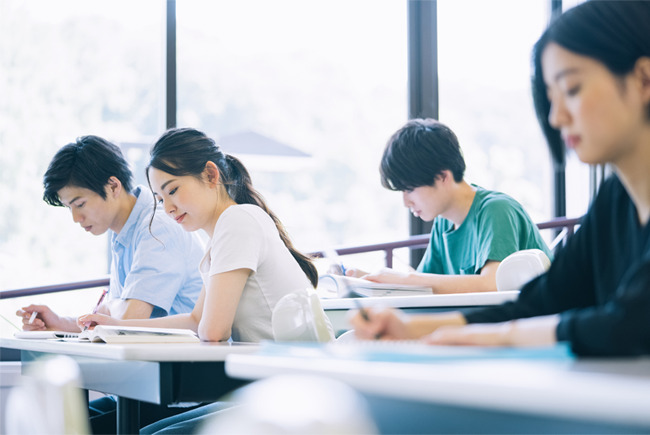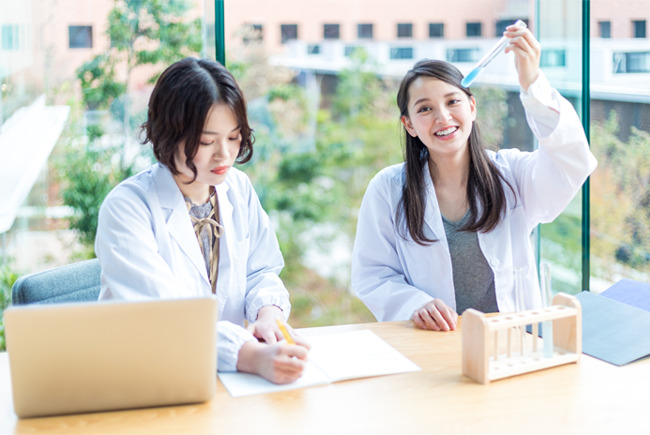In the 2023 entrance examination, there was a significant increase in the average mathematics score of the university entrance common test (hereafter, the common test), and the number of applicants at difficult national universities increased.Information sites of each company have begun to publish detailed analysis of entrance examination results.

The number of applicants for the 2023 entrance examination has decreased slightly, and the number of new departments will continue to increase in the 2024 academic year
Analysis of the 2023 entrance examination results has been published on each company's entrance examination information site, but on the university entrance examination information site of Sundai Preparatory School, ``2023 national and public university entrance examination situation analysis'' and ``2023 private university entrance examination situation analysis'' It is explained in considerable detail.
According to this, the number of applicants for the 2023 entrance examination has decreased slightly at both national and public universities and private universities, but due to the increase in the average score of the common test, the number of applicants at the most difficult national universities is increasing. was seen.Kyoto University, Hitotsubashi University, and Tokyo Institute of Technology have seen an increase in the number of applicants.Yokohama National University has seen a significant increase in the number of applicants due to changes in the entrance examination system.Last year, the implementation of individual examinations was canceled due to measures against infectious diseases.In practice, the pass/fail judgment system was based only on the scores of the standardized test, so high borderlines were avoided, and the number of applicants nearly halved.This year, individual exams were held as usual, so the reaction has come out at once.
In addition, Hitotsubashi University is the only national university in the metropolitan area that offers the second semester schedule, but the popularity of the newly established Faculty of Social and Data Science also contributes to the increase in applicants.In this way, the establishment of new faculties at leading national universities has been conspicuous in recent years, and this has had a major impact on entrance examination trends. In 2024, many new faculties are scheduled to be established at both national and public universities and private universities.Details can be found on the Sundai Preparatory School's university entrance examination information site, "2024 list of new national and public universities" and "2024 list of new major private universities".
Sundai Preparatory School University Entrance Examination Information Site
https://www2.sundai.ac.jp/yobi/sv/news/index.html
Expansion of quotas for women in the newly established Ochanomizu University Faculty of Co-Creative Engineering and Faculty of Science and Technology
In 2024, several new faculties such as Ibaraki University Regional Future Co-Creation Faculty, Utsunomiya University Faculty of Data Science Management, Ochanomizu University Faculty of Co-Creation Engineering, Kumamoto University Interdisciplinary Interdisciplinary Information Studies, Kumamoto University Faculty of Engineering Semiconductor Device Engineering Course are planned. I'm here.Yamagata Prefectural College of Agriculture and Forestry and Tohoku College of Agriculture and Forestry are also noteworthy.Please note that the names of the faculties are tentative, as they are still in the process of planning to be established or applying for permission to establish them.
Among them, Ochanomizu University Faculty of Co-Creative Engineering is attracting attention as the second engineering faculty of a national women's university, following Nara Women's University Faculty of Engineering, which was established in 2022.Due to the small capacity of 26 students in the Department of Human and Environmental Engineering and 20 students in the Department of Cultural Information Engineering, regardless of the selection method, such as general selection or school recommendation selection, it is expected that the borderline for admission will be high.However, for female students aiming to enter science and engineering, the options are wider than ever before.
Starting in 2024, the Tokyo Institute of Technology will also offer women's quotas for female students wishing to study science and engineering through comprehensive selection and school-recommendation selection.The Kumamoto University Interfaculty Initiative in Information Technology, which is scheduled to be newly established, will also have a women's quota for school-recommended selection.Among private universities, Tokyo University of Science will establish a women's quota through comprehensive selection of 16 departments in XNUMX faculties.
In this way, from the 2024 academic year onwards, the options for female students aiming to enter science and engineering courses will expand considerably.Regarding this women's quota, new universities are attracting attention, but from 2023, Nagoya University will set a women's quota for school recommendation selection.In addition, Shibaura Institute of Technology has been implementing an open recruitment recommendation admissions selection (female) since 2022, and is also providing scholarships.If similar measures continue at each university, it seems that the pioneer will rather be buried.
Five private universities are scheduled to be newly established, and a pharmacy department is also to be established.
The rush to establish new private universities continues, and five new universities are scheduled to be established.New faculties are scheduled to be established at popular universities such as Toyo University and Japan Women's University.Among universities in the Tokyo metropolitan area, Musashino University will set up a well-being department.Musashino University has established ambitious undergraduate departments such as Entrepreneurship Department and Sustainability Department, but it is interesting to see what kind of academic field will be used to build a learning system for well-being.The information published on the website is still limited, probably because the plan is still underway, but the details of the curriculum are expected to be announced in due course.

In addition, in the medical field, there have been many establishments of nursing and rehabilitation departments so far, but next year there are plans to establish a pharmacy department.Two universities, International University of Health and Welfare Narita Faculty of Pharmaceutical Sciences and Juntendo University Faculty of Pharmaceutical Sciences, are planning to set up.The Faculty of Pharmaceutical Sciences, especially in the field of drug discovery, is very popular with applicants, but since the early 2000s, the number of new colleges and universities has continued to increase nationwide, and currently the number of new colleges and universities is being curtailed.It is already one of the undergraduate systems where competition between universities is very tough.Aside from national and public universities, there is a considerable difference in the capacity filling rate among private universities.
On the Ministry of Education, Culture, Sports, Science and Technology's pharmacy education website, "study status in pharmacy department" and "withdrawal status in 2022-year pharmacy course" are announced by university.Looking at the results of the entrance examination for 30, depending on the university, there are some universities with a capacity sufficiency rate of 40% or 28%.Some universities have a capacity filling rate of 50%.It's a very hard number.Furthermore, looking at the dropout rate, depending on the year, there are universities that exceed XNUMX%. One out of every two students drop out of school, so it is difficult for the university, but I think the situation is even more difficult for the students.
This data has a strong impact and is often thought-provoking, so I recommend anyone who is involved in academic guidance to take a look at it.
Ministry of Education, Culture, Sports, Science and Technology Pharmaceutical Education Website
https://www.mext.go.jp/a_menu/01_d/08091815.htm
